Is Your Apartment Safe – A Tenant's Guide to Apartment Safety
When it comes to living in an apartment, peace of mind is essential. After all, your home is your sanctuary, and you want to feel secure in your space. But how can you ensure that your apartment is indeed safe? This article delves into the critical aspects of apartment safety for tenants, covering everything from security measures to emergency preparedness. By the end, you’ll be equipped with the knowledge you need to create a safe living environment for yourself and your loved ones.
Apartment security is more than just a buzzword; it's a fundamental aspect of your living experience. Think about it: you lock your doors, but what else are you doing to protect yourself? A comprehensive security system can make a world of difference. This includes robust locks, state-of-the-art alarms, and surveillance cameras that keep an eye on your surroundings. You might even consider investing in smart home technology that allows you to monitor your apartment remotely. By assessing these features, you can determine whether your living space offers the protection you need.
Every apartment building should come equipped with essential safety features. But what should you be looking for? For starters, check if there are clearly marked fire exits and adequate emergency lighting. Secure entrances are also crucial; they deter unwanted visitors and keep residents safe. Take a moment to evaluate your building's layout and safety measures. If you notice any deficiencies, it might be time to have a conversation with your landlord. Remember, your safety is a priority!
Fire safety is a serious matter that can’t be overlooked. Every apartment should have working smoke detectors and fire extinguishers readily available. But it doesn’t stop there; you should also familiarize yourself with your building's evacuation plans. Knowing where to go and how to get there in case of a fire can save lives. As a tenant, you have a responsibility to ensure that these measures are in place and functional. Don’t hesitate to bring up any concerns with your landlord or property manager.
Having a personal emergency plan is a game changer. Imagine this: it’s the middle of the night, and you hear the fire alarm blaring. What do you do? Panic is your worst enemy in such situations. By creating a plan that outlines escape routes and communication strategies, you can significantly reduce anxiety during emergencies. Sit down with your family or roommates and discuss how everyone will respond in case of a crisis. This preparation can make all the difference.
Practicing fire drills in your apartment is not just for schools; it’s a smart move for adults too! Set a date and time to conduct a fire drill, where everyone in your household practices the escape plan. This exercise helps everyone remember their roles and identify any potential obstacles. You might even want to time how long it takes to evacuate—this can be a fun yet educational experience that prepares you for the real thing.
Understanding the safety of your neighborhood is equally important. You wouldn’t want to live in an area known for high crime rates, right? Take the time to research local crime statistics and community resources. Websites like neighborhoodscout.com or local police department websites can provide valuable insights. Additionally, consider joining community forums or social media groups where residents share their experiences and safety tips. Being informed is your first line of defense.
Now that you’ve covered the basics, let’s dive into some practical advice for personal safety. First and foremost, always be aware of your surroundings. Whether you’re walking to your car or entering your building, stay alert. It's also wise to secure your personal belongings. Lock your doors and windows, and consider investing in a safe for valuables. Building relationships with your neighbors can also enhance your safety; a friendly community is often a safer one.
When it comes to securing your apartment, every little bit helps. Start with window locks and door reinforcements; these simple additions can deter intruders. If your apartment allows it, consider installing a security system or smart locks that you can monitor from your phone. These measures not only protect you but also give you the peace of mind you deserve.
Lastly, don’t underestimate the power of community. Getting to know your neighbors can create a network of support that enhances safety. Participate in community watch programs or local events to foster relationships. When people look out for each other, it creates a safer living environment for everyone. Remember, safety is a shared responsibility!
Q: What should I do if I notice safety issues in my apartment?
A: Report any safety concerns to your landlord or property manager immediately. They are responsible for maintaining a safe living environment.
Q: How often should I check my smoke detectors?
A: It’s a good practice to check your smoke detectors monthly and replace the batteries at least once a year.
Q: Are there specific security systems recommended for apartments?
A: Look for systems that offer door/window sensors, motion detectors, and mobile monitoring capabilities. Brands like Ring and ADT are popular choices.
Q: How can I find out about crime rates in my neighborhood?
A: Websites like NeighborhoodScout, local police department websites, and community forums can provide valuable information on crime statistics.
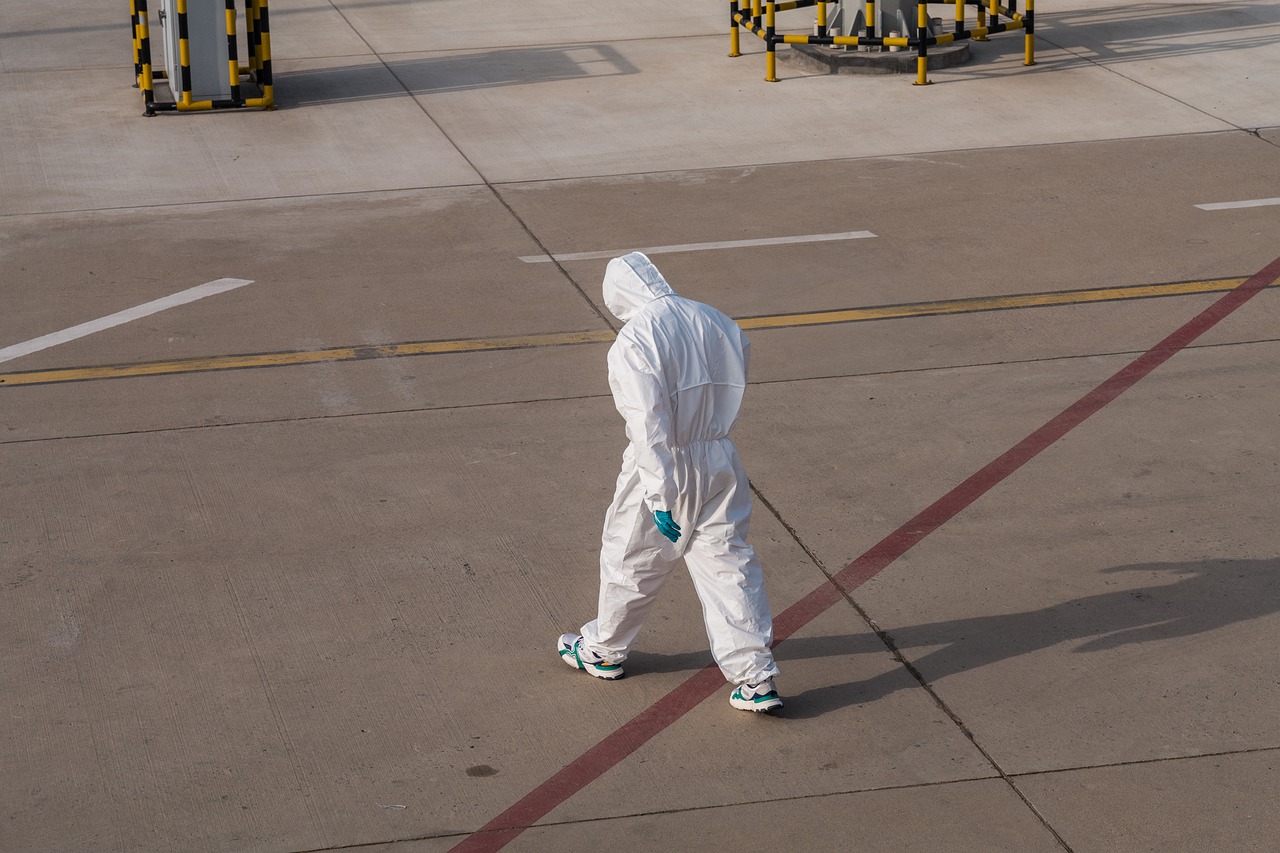
Understanding Apartment Security
When it comes to feeling safe in your apartment, security is paramount. Think of your apartment as a fortress; it should be equipped with the necessary defenses to keep unwanted intruders at bay. The first line of defense often starts with the locks on your doors and windows. Investing in high-quality deadbolts and window locks can significantly enhance your security posture. But why stop there? Modern technology offers a plethora of options, such as smart locks that allow you to control access through your smartphone. Imagine being able to lock or unlock your door from anywhere—now that’s peace of mind!
Another essential component of apartment security is the alarm system. Many apartment complexes come equipped with basic alarm systems, but are they sufficient? It’s worth considering a personal security system tailored to your needs. These systems can range from simple door alarms to comprehensive setups that include motion detectors and surveillance cameras. The latter not only deter potential burglars but also provide you with visual evidence should an incident occur. In fact, studies show that properties with visible security cameras are less likely to be targeted by criminals.
Speaking of surveillance, let’s not overlook the importance of surveillance cameras. Whether you opt for a DIY setup or your building has a professional system, having cameras in common areas can be a game-changer. They serve as a reminder that someone is watching, which can deter criminal activity. If your apartment complex lacks this feature, it might be worth discussing with your landlord or property management. After all, a community that prioritizes safety is a community worth living in.
In addition to these physical security measures, community awareness plays a crucial role in apartment security. Get to know your neighbors; they can be your eyes and ears when you're not around. Consider forming a neighborhood watch program where everyone looks out for each other. This creates a sense of community and shared responsibility, making it harder for criminals to operate unnoticed. Remember, a united front is a strong front.
Lastly, don’t forget about the importance of lighting. A well-lit exterior can discourage potential intruders from approaching your building. Ensure that hallways, entrances, and parking areas are adequately illuminated. If you notice any dark spots, bring it to the attention of your property management. After all, visibility is key in preventing crime.
In summary, understanding apartment security is not just about installing locks and cameras; it’s about creating a comprehensive safety strategy that involves both physical measures and community engagement. By taking proactive steps, you not only enhance your own safety but also contribute to a safer living environment for everyone.
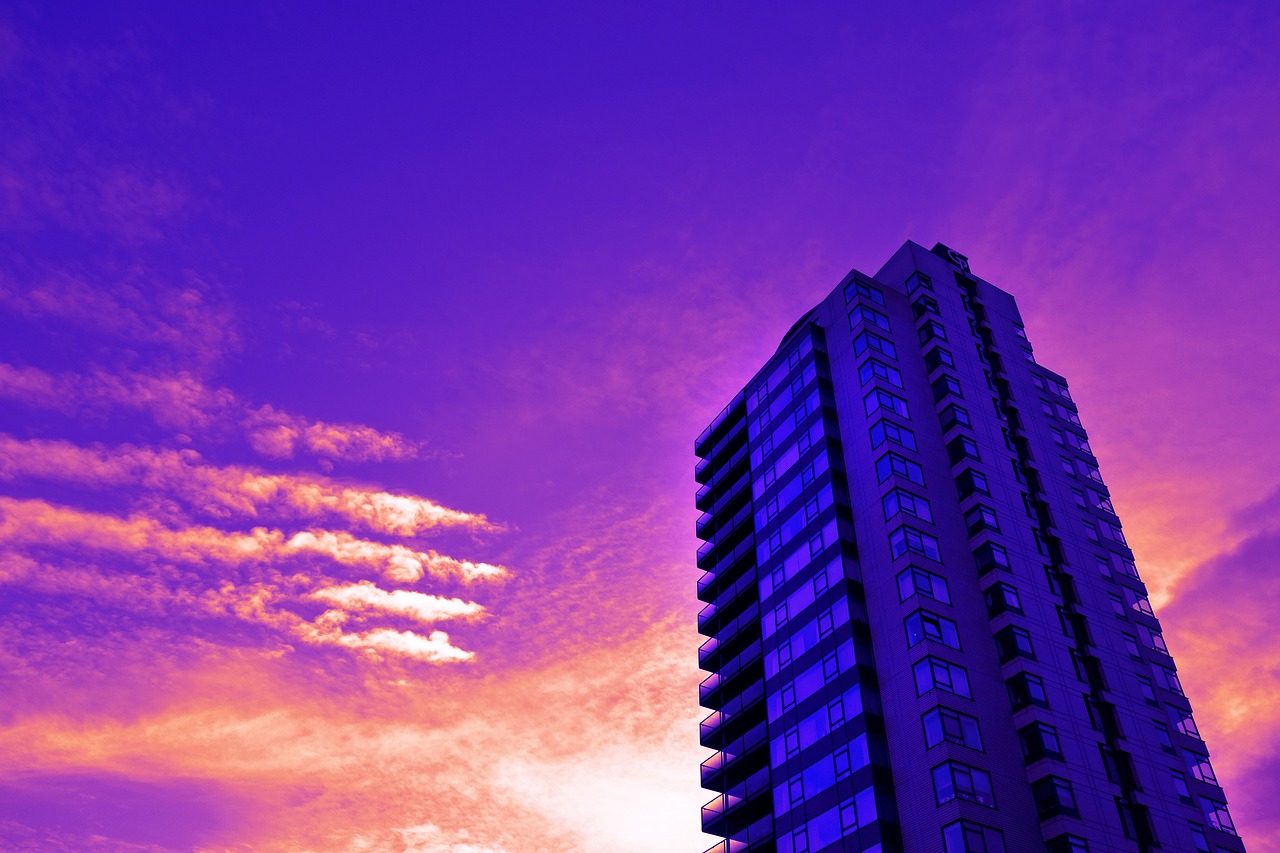
Evaluating Your Building's Safety Features
When it comes to ensuring your safety as a tenant, evaluating your building's safety features is absolutely crucial. You wouldn't drive a car without checking the brakes, right? Similarly, you shouldn't overlook the security and safety measures in your living space. A well-constructed apartment building should have a variety of safety features that contribute to a secure environment. Here are some key elements to look for:
First and foremost, secure entrances are essential. A building should have controlled access points, such as locked doors and intercom systems that prevent unauthorized individuals from entering. This simple measure can significantly reduce the risk of break-ins and enhance your overall sense of security. Additionally, check if your building has adequate lighting in common areas and entrances. Well-lit spaces deter criminal activity and make it easier for residents to navigate safely at night.
Another important feature is the presence of fire safety measures. This includes:
- Fire Exits: Ensure that there are clearly marked fire exits that are easily accessible.
- Emergency Lighting: In case of power outages, emergency lights should illuminate exit paths.
- Smoke Detectors: These should be installed in every unit and common area to alert residents in case of fire.
- Fire Extinguishers: Check for the presence of fire extinguishers in strategic locations throughout the building.
Furthermore, it's wise to inquire about the building's emergency procedures. Does the management have a clear evacuation plan? Are tenants regularly informed about fire drills? Knowing that there are established protocols can provide peace of mind and prepare you for unexpected situations.
In addition to physical safety features, consider the overall maintenance of the building. A well-maintained property is often a reflection of attentive management. Look for signs of wear and tear, such as broken locks or malfunctioning security systems, as these can indicate a lack of diligence in maintaining safety standards. If you notice any issues, don't hesitate to bring them to the attention of the management team.
Lastly, it's beneficial to engage with your neighbors to gauge their feelings about safety in the building. A tight-knit community can be a great asset when it comes to looking out for one another. If you find that many residents share concerns about safety features, it might be time to address these issues collectively with the building management.
In conclusion, evaluating your building's safety features is not just a one-time task; it's an ongoing process that requires vigilance and communication. By being proactive, you can ensure that your living environment is as safe as possible, allowing you to focus on enjoying your home without unnecessary worries.
Q: What should I do if I notice a safety issue in my apartment building?
A: Report it to your building management immediately. Document the issue and follow up to ensure it is addressed.
Q: How can I find out about crime rates in my neighborhood?
A: You can check local police department websites, community forums, or neighborhood apps that provide crime statistics.
Q: Are there any specific safety features I should look for when apartment hunting?
A: Yes, look for secure entrances, fire safety measures, adequate lighting, and a responsive management team.
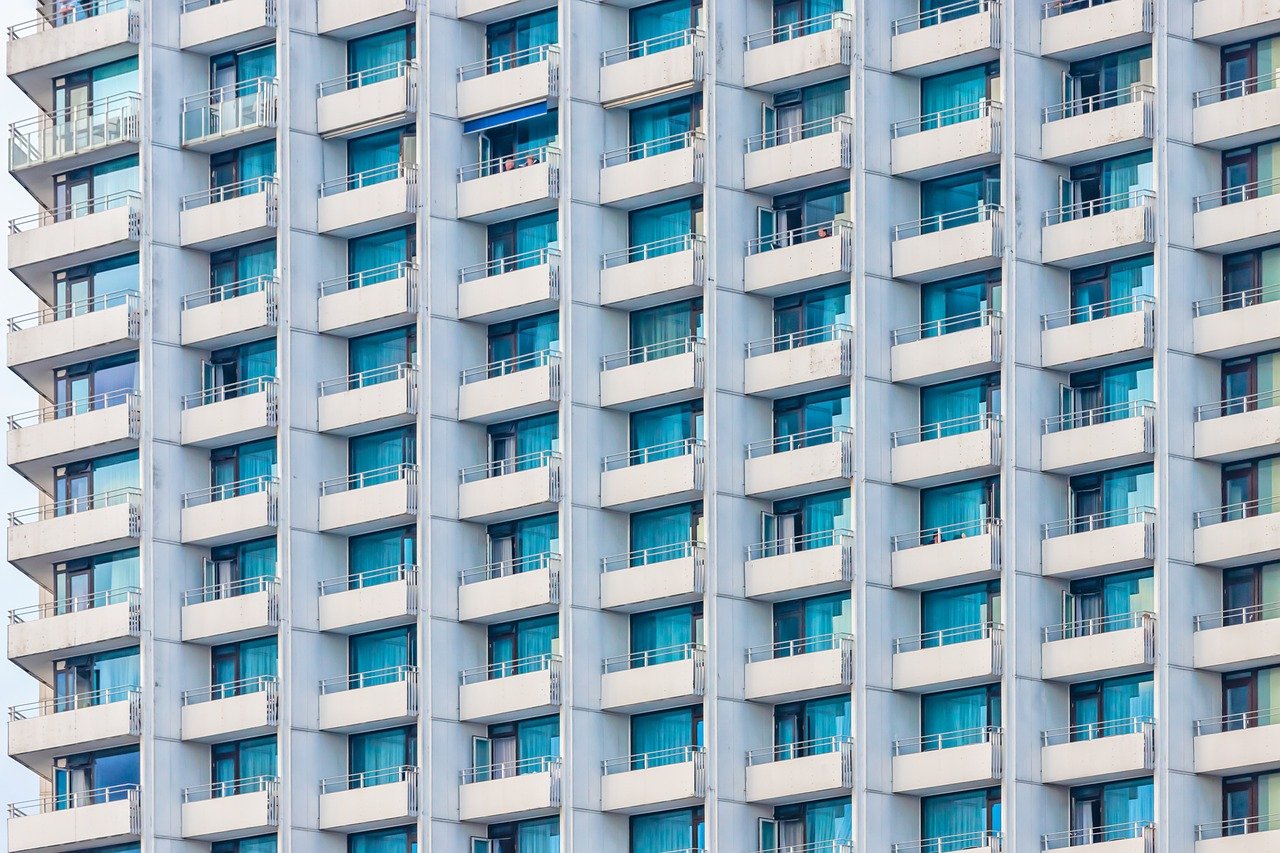
Fire Safety Measures
When it comes to apartment living, fire safety is not just a suggestion—it's a necessity. Imagine waking up in the middle of the night to the smell of smoke; it’s a nightmare scenario no one wants to face. Understanding the fire safety measures in your apartment can make all the difference between a close call and a tragic event. First and foremost, every apartment should be equipped with smoke detectors. These devices are your first line of defense against fire. They should be installed in every bedroom, outside each sleeping area, and on every level of your apartment. Make it a habit to test them monthly and change the batteries at least once a year. Remember, a working smoke detector can save lives.
Next on the list is the availability of fire extinguishers. Every tenant should have easy access to a fire extinguisher, ideally located in the kitchen or near potential fire hazards. Know how to use it! Familiarize yourself with the PASS technique: Pull, Aim, Squeeze, and Sweep. This simple acronym could help you extinguish a small fire before it escalates. Additionally, check your building’s regulations to ensure that fire extinguishers are regularly inspected and maintained.
Another crucial aspect of fire safety is having a clear and effective evacuation plan. Every apartment should have a designated escape route, which includes knowing multiple ways out in case one route is blocked. Sit down with your roommates or family members and map out your escape plan. Make sure everyone understands the plan and practices it regularly. This is especially important in high-rise buildings where stairwells can be crowded during an emergency.
In addition to personal safety measures, it’s essential to be aware of your building's fire safety features. Most apartment complexes are required to have fire exits and emergency lighting in common areas. Familiarize yourself with these features. Know where the fire exits are located, and ensure that they are not blocked or locked. Emergency lighting can guide you out during a power outage, so pay attention to where these lights are installed.
Sometimes, fires can start due to negligence or oversight. Therefore, it’s crucial to avoid certain risks in your apartment. For instance, never leave cooking unattended, and ensure that all flammable materials are stored safely away from heat sources. If you smoke, do so outside and use a proper container for cigarette butts. These small actions can significantly reduce the risk of a fire starting in your home.
Lastly, consider participating in or organizing fire drills in your building. These drills are not just for schools; they can be beneficial in apartment complexes too. They help residents become familiar with the evacuation process and identify any potential issues that may arise during an actual emergency. After all, being prepared is half the battle!
In summary, fire safety in your apartment involves a combination of having the right tools, knowing how to use them, and being prepared. By taking these precautions seriously, you can create a safer living environment for yourself and your neighbors. Remember, when it comes to fire safety, being proactive is always better than being reactive.
- What should I do if I hear a fire alarm?
Immediately evacuate the building using the nearest exit. Do not use elevators and ensure you help others if possible. - How often should I check my smoke detectors?
You should test your smoke detectors monthly and change the batteries at least once a year. - Where should I keep my fire extinguisher?
Keep it in an easily accessible location, preferably in the kitchen or near areas where fires are more likely to occur. - Can I use water to extinguish all types of fires?
No, never use water on grease fires or electrical fires. Use a fire extinguisher suitable for those types of fires instead.

Creating an Emergency Plan
Creating an emergency plan is not just a good idea; it’s a necessity for every tenant. Imagine waking up in the middle of the night to the smell of smoke or the sound of an alarm blaring. What would you do? Having a well-thought-out emergency plan can make all the difference between chaos and calm in such situations. Start by assessing your living space and identifying the safest exits. This means knowing not just the main door but also any fire escapes or windows that can serve as additional exits.
Next, it’s crucial to have a clear understanding of your building’s layout. Create a simple map of your apartment and mark the locations of exits, fire extinguishers, and any potential hazards. This visual aid will help you and your family navigate safely during an emergency. Don't forget to share this map with everyone who lives in your apartment, ensuring that everyone is on the same page.
Communication is another key aspect of your emergency plan. Establish a communication strategy with your family or roommates. Decide on a designated meeting spot outside of your building where everyone can gather after evacuating. This could be a nearby park or a neighbor's house. Make sure everyone knows how to reach each other via phone or text, as cell service may be disrupted during emergencies.
To further enhance your preparedness, consider conducting regular drills. Just like fire drills at school, practicing your emergency plan can help everyone feel more comfortable and confident when it counts. Schedule these drills at least twice a year to keep the plan fresh in everyone's minds. You can even turn it into a fun family activity! Use these drills to identify any areas that need improvement in your plan.
In addition to these steps, it’s wise to keep an emergency kit stocked with essential supplies. This kit should include:
- First-aid supplies
- Flashlights and extra batteries
- Non-perishable food and water
- A whistle to signal for help
- Important documents in a waterproof bag
Lastly, be sure to review and update your emergency plan regularly, especially if there are changes in your living situation or if new roommates move in. Remember, the goal is to create a sense of security and preparedness that empowers you to act swiftly and effectively during emergencies.
By taking these proactive steps, you can ensure that you and your loved ones are ready for any unexpected situation. After all, safety is not just about having locks on your doors; it’s about being prepared for whatever life throws your way.
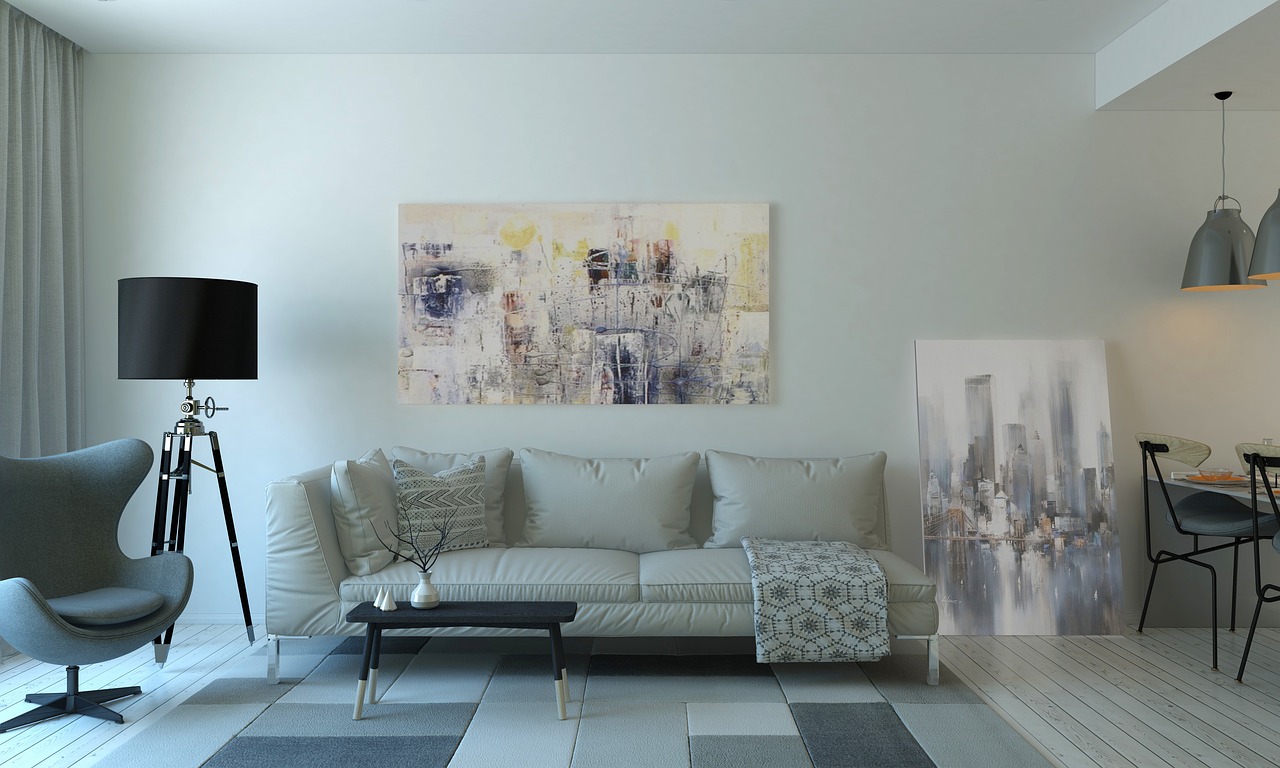
Fire Drills and Preparedness
When it comes to ensuring your safety in an apartment, fire drills are not just a good idea; they are essential. Imagine this: you're watching your favorite show, completely engrossed in the plot, when suddenly the fire alarm blares. Panic sets in, and you realize you have no idea how to get out quickly and safely. This is why practicing fire drills is crucial. By familiarizing yourself with the escape routes and procedures, you can significantly reduce the risk of injury during a real emergency.
So, how do you conduct a fire drill in your apartment? First, gather your household members and explain the importance of the drill. Make it clear that this is a practice session, not a real emergency. Next, identify the primary and secondary escape routes from your apartment. These routes should be clear of obstacles, and everyone should know how to access them swiftly. Once you have established these routes, set a timer and simulate a fire alarm. This will give everyone a sense of urgency and help them understand the importance of acting quickly.
After the drill, take some time to evaluate how it went. Ask yourself and your household members questions like:
- Did everyone know where to go?
- Were there any obstacles in the way?
- How long did it take to evacuate?
These reflections can help you improve your preparedness for a real emergency. Additionally, ensure that you have a designated meeting point outside your building where everyone can gather to account for each other. This is particularly important in multi-unit buildings, where it's easy to lose track of who has escaped.
Also, consider the importance of having a fire extinguisher readily available in your apartment. Make sure it's easily accessible and that everyone knows how to use it. Familiarize yourself with the PASS technique: Pull, Aim, Squeeze, and Sweep. This simple acronym can make a significant difference in controlling small fires before they escalate.
In conclusion, practicing fire drills and being prepared can mean the difference between chaos and calm during an emergency. Just like athletes train for a big game, you should train for potential emergencies. It’s not just about knowing the routes; it’s about being mentally prepared to act when it matters the most.
Q: How often should I practice fire drills in my apartment?
A: It's recommended to practice fire drills at least twice a year to keep everyone familiar with the escape routes and procedures.
Q: What should I do if I can't use my primary escape route?
A: Always have a secondary escape route planned. If your primary route is blocked, remain calm and use the alternative route. If you are trapped, seal the door and signal for help.
Q: Should I inform my neighbors about the fire drill?
A: Yes, it's a good idea to inform your neighbors, especially if you live in a multi-unit building. This can help create a coordinated response in case of an actual emergency.
Q: What types of fire safety equipment should I have in my apartment?
A: At a minimum, you should have smoke detectors, a fire extinguisher, and a clearly marked escape route. Regularly check that your smoke detectors are functioning and replace batteries as needed.

Neighborhood Safety Considerations
When it comes to apartment safety, understanding your neighborhood is just as crucial as securing your living space. After all, a safe apartment in a high-crime area can still leave you feeling uneasy. So, how do you assess the safety of your surroundings? Start by doing a little detective work! Researching crime rates in your area can provide valuable insight into what you might expect. Websites like NeighborhoodScout or CrimeReports can offer statistics that help you gauge the safety of your community.
But don’t just rely on numbers! Take a stroll around your neighborhood during different times of the day. Notice the level of activity, the condition of the streets, and the presence of streetlights. A well-lit area can deter crime, making you feel more secure as you walk home at night. Additionally, pay attention to the people in your neighborhood. Are there families, children playing, or community members engaging with one another? A vibrant community often indicates a safer environment.
Another essential aspect to consider is the availability of community resources. Look for local police stations, community centers, or neighborhood watch programs. Engaging with these resources can not only enhance your safety but also help you connect with others who share your concerns. You might even find that your neighbors are just as eager to promote safety in the area.
Here are some key factors to keep in mind when evaluating your neighborhood:
- Crime Statistics: Look for trends in crime rates, focusing on violent crimes versus property crimes.
- Community Engagement: A neighborhood that actively participates in community events and safety meetings tends to be safer.
- Emergency Services: Proximity to fire stations and hospitals can be a significant advantage.
- Lighting and Visibility: Well-lit streets and visible public spaces can deter criminal activity.
In addition to these considerations, it’s always a good idea to talk to your potential neighbors. Ask them about their experiences living in the area. They can provide a first-hand account of any safety concerns or positive aspects that statistics might not reveal. Building relationships with your neighbors can also create a support system that enhances overall safety. After all, there’s strength in numbers, and knowing your neighbors can lead to a more connected and vigilant community.
Lastly, don't forget to trust your instincts. If something feels off, it probably is. Your gut feeling can be a powerful tool in assessing your safety. By being proactive and informed, you can make smarter choices about where to live and how to stay safe in your apartment.
- How can I find crime statistics for my neighborhood?
You can check online resources like NeighborhoodScout, CrimeReports, or local police department websites for detailed crime statistics. - What should I do if I notice suspicious activity in my neighborhood?
Trust your instincts and report any suspicious activity to local law enforcement. It's always better to be safe than sorry! - Are neighborhood watch programs effective?
Yes! Neighborhood watch programs can significantly reduce crime rates by fostering community vigilance and cooperation among residents.
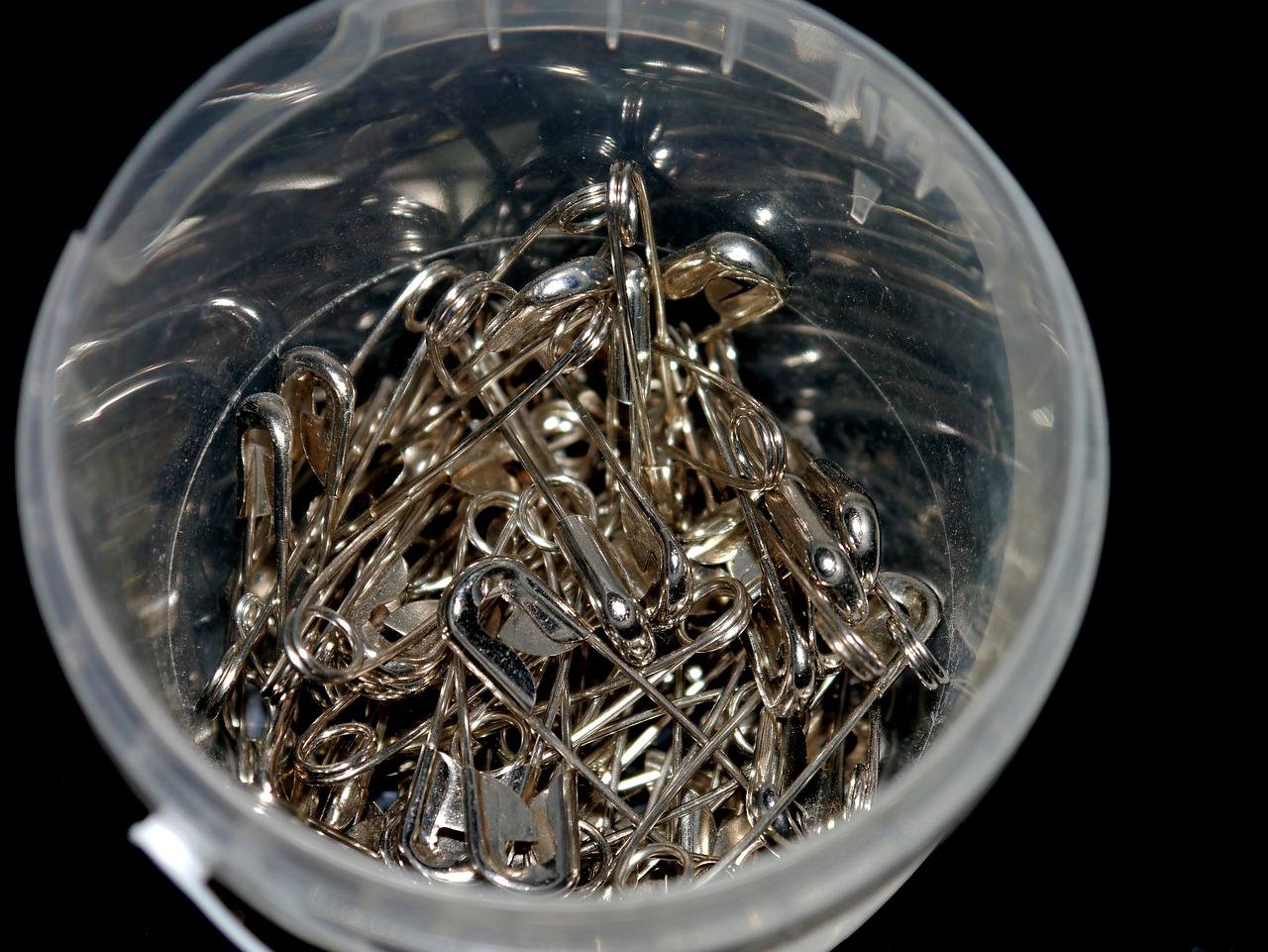
Personal Safety Tips for Tenants
Living in an apartment can be a delightful experience, but it also comes with its own set of safety concerns. As a tenant, it's crucial to prioritize your personal safety and create a secure living environment. So, how can you ensure that you feel safe in your space? Let's dive into some practical tips that can help you stay protected.
First and foremost, awareness of your surroundings is key. Whether you're coming home late at night or just taking a stroll around your neighborhood, being alert can make a significant difference. It's like being a detective in your own life; notice anything unusual or out of place. If something feels off, trust your instincts and take action. This could mean avoiding certain areas or keeping your phone handy to call for help if needed.
Next, securing your apartment is essential. Start with the basics: ensure that all doors and windows are locked when you're home and especially when you leave. Consider investing in additional security measures such as door reinforcements or smart locks. These upgrades not only enhance your safety but also provide peace of mind. Additionally, don't forget about window locks; they can be a game-changer in keeping intruders at bay.
Another vital aspect is to develop relationships with your neighbors. Building a sense of community can significantly enhance safety. When you know the people living around you, you're more likely to look out for one another. You can start by introducing yourself or participating in community events. Consider joining or forming a neighborhood watch program; this collective effort can create a more secure environment for everyone. After all, there's safety in numbers!
To further bolster your safety, consider implementing some smart home technology. Devices like security cameras, motion detectors, and smart lighting can make your apartment feel more secure. Imagine coming home to a well-lit space that automatically turns on as you approach—it's like having a friendly guardian watching over you. Plus, many of these devices can be monitored through your smartphone, allowing you to keep an eye on your home even when you're away.
Lastly, it's important to secure your personal belongings. Use a safe for valuable items and avoid leaving expensive gadgets in plain sight. When you’re out and about, be mindful of your belongings—keep your bag close and avoid distractions that could make you an easy target. Remember, a little caution goes a long way in ensuring your safety.
In summary, personal safety as a tenant is about being proactive. By staying aware, securing your apartment, building community connections, and using technology wisely, you can create a safer living environment. It's not just about protecting yourself; it's about fostering a sense of security that allows you to enjoy your home to the fullest.
- What should I do if I feel unsafe in my apartment? If you ever feel unsafe, trust your instincts. Contact your landlord or local authorities and consider enhancing your security measures.
- Are there specific security devices I should invest in? Yes! Consider smart locks, security cameras, and motion-activated lights to enhance your apartment's safety.
- How can I get to know my neighbors better? Attend community meetings, host a small gathering, or simply introduce yourself when you see them around.

Securing Your Apartment
When it comes to feeling safe in your apartment, securing your space is paramount. It’s not just about locking the door when you leave; it’s about creating a fortress that makes you feel at ease. After all, your home should be your sanctuary, a place where you can kick back and relax without worrying about intruders. So, how can you enhance the security of your apartment? Let’s dive into some effective strategies that can help bolster your peace of mind.
First and foremost, consider upgrading your locks. Many apartments come with standard locks that can be easily compromised. By investing in high-quality deadbolts or smart locks, you’re adding an extra layer of protection. Smart locks, in particular, offer convenience and security, allowing you to monitor who enters and exits your home through your smartphone. Imagine being able to let in a friend remotely while you’re out—pretty neat, right?
Another crucial aspect is securing your windows. Many people overlook window locks, thinking that their doors are the only entry points that need attention. However, unsecured windows can be a vulnerable spot. Installing window locks or even security film can prevent break-ins. For those living on higher floors, consider using window screens that can’t be easily removed from the outside. It’s like adding a little extra armor to your fortress!
Don't forget about the power of good lighting! Well-lit areas around your apartment can deter potential intruders. Consider using motion-sensor lights in common areas or near entrances. These lights not only illuminate your space but also create the impression that someone is always home, which can be a significant deterrent. Think of it as a spotlight shining on your commitment to safety.
Additionally, getting to know your neighbors can greatly enhance your apartment's security. Building a rapport with those living around you creates a community that looks out for one another. If you notice suspicious activity, you can alert each other, creating a network of vigilance. Plus, having friends nearby means you can share tips and strategies for keeping your homes safe. It’s like forming a neighborhood watch, but with a friendlier vibe!
Lastly, consider investing in a security system. Many options are available today, from traditional alarm systems to modern smart home devices that allow you to monitor your apartment remotely. Some systems even come equipped with surveillance cameras that can send alerts directly to your phone. Imagine being at work and receiving a notification that someone is at your door—talk about peace of mind!
In conclusion, securing your apartment is about more than just locks and alarms; it’s about creating an environment where you feel safe and protected. By taking proactive steps to enhance your apartment's security, you can transform your living space into a true sanctuary. Remember, safety is not just a one-time effort; it’s an ongoing commitment to your well-being.
- What are the best locks to use for apartment security? High-quality deadbolts and smart locks are recommended for their strength and convenience.
- How can I secure my windows effectively? Use window locks, security film, and screens that can’t easily be removed from the outside.
- Are security systems worth the investment? Yes, they provide peace of mind and can deter potential intruders.
- How can I build a rapport with my neighbors? Engage in friendly conversations, participate in community events, and consider forming a neighborhood watch.
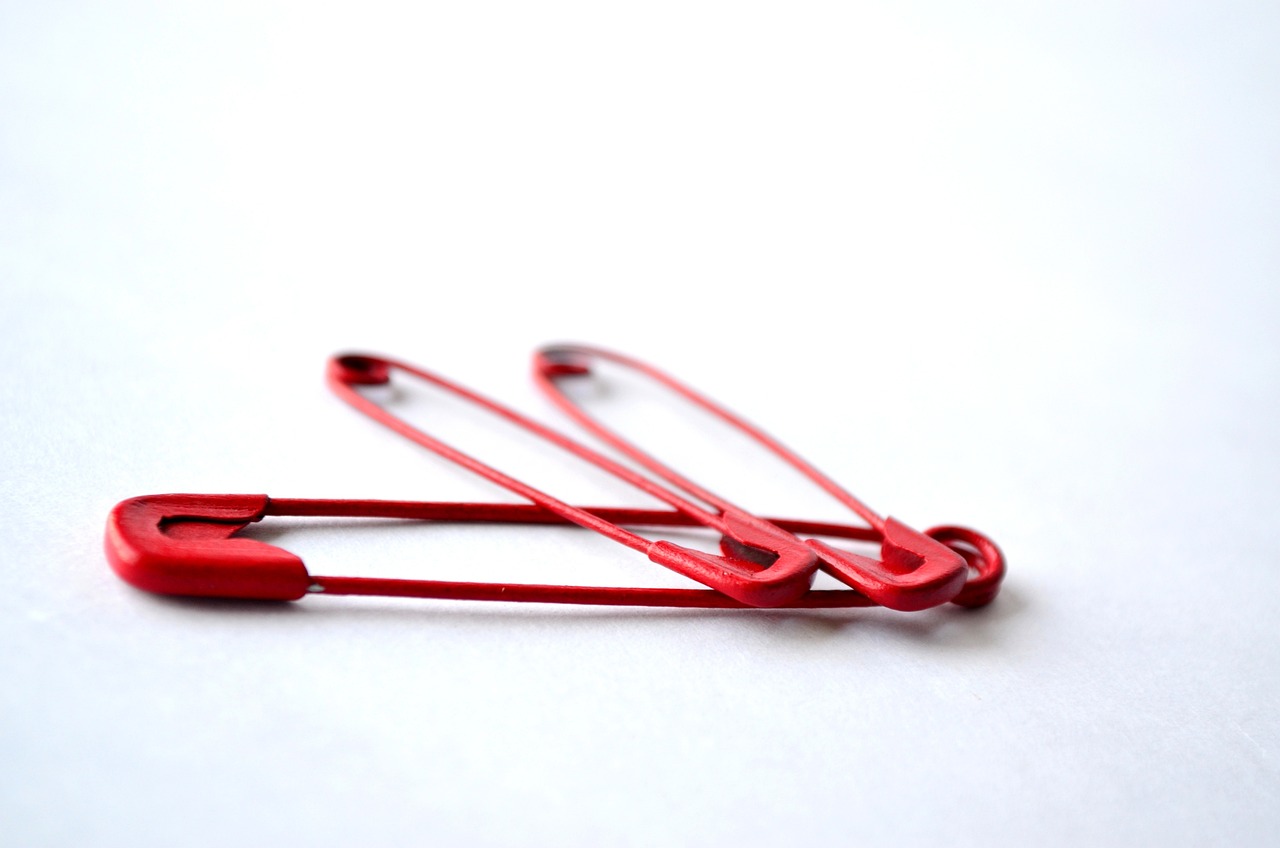
Building Community Connections
Creating a safe living environment goes beyond just locking your doors and securing your windows; it's about building a sense of community. Think of your apartment complex as a small village where everyone looks out for each other. When you foster connections with your neighbors, you not only enhance your personal safety but also contribute to a more vibrant and supportive atmosphere. Have you ever noticed how a friendly wave or a casual chat can make you feel more at home? That's the power of community!
Start by introducing yourself to your neighbors. A simple "hello" can break the ice and open the door to deeper conversations. You might discover shared interests or even common concerns about safety in your building or neighborhood. For instance, if you're both dog owners, you could arrange regular walks together, creating a routine that strengthens your bond. Engaging in casual conversations can lead to friendships that make you feel more secure in your living space.
Another effective way to build community connections is by participating in or organizing neighborhood events. Whether it's a block party, a potluck dinner, or a community clean-up, these gatherings provide a perfect opportunity to meet new people and foster relationships. You can even consider starting a book club or a game night. Not only do these activities create a sense of belonging, but they also encourage open discussions about safety concerns, leading to collective solutions. Imagine how empowered you would feel knowing that your neighbors are aware and proactive about safety!
Additionally, consider forming or joining a neighborhood watch program. Such initiatives are not just about keeping an eye on suspicious activities; they create a network of communication among residents. This way, everyone is informed about local happenings, and you can quickly share important information, like crime alerts or safety tips. Having a group of trusted neighbors who are vigilant can dramatically increase your peace of mind.
Lastly, don't underestimate the power of social media or community apps. Platforms like Nextdoor or Facebook groups dedicated to your area can be fantastic tools for staying connected. You can share updates, ask for recommendations, or even alert others about local issues. Just remember to engage respectfully and positively; after all, the goal is to create a supportive environment where everyone feels safe and valued.
In conclusion, building community connections is an essential aspect of apartment living that shouldn't be overlooked. By taking the time to get to know your neighbors, participating in community activities, and utilizing digital platforms, you can create a safer and more enjoyable living experience for yourself and those around you. So, why not take that first step today? You might just find that your neighbors are not only people living next door, but friends who enhance your life!
- How can I meet my neighbors? Start with simple greetings when you see them, and consider organizing or participating in community events.
- What should I do if I notice suspicious activity? Report it to local authorities and inform your neighbors through your community network.
- Are neighborhood watch programs effective? Yes, they can significantly improve safety by fostering a sense of vigilance among residents.
- What online platforms can help me connect with my community? Websites like Nextdoor, Facebook groups, or even local forums can be effective for connecting with neighbors.
Frequently Asked Questions
-
What should I look for in an apartment security system?
When assessing an apartment security system, consider features like sturdy locks on doors and windows, security alarms, surveillance cameras, and adequate lighting around entrances. A good security system is your first line of defense against potential threats, ensuring you feel safe and secure in your home.
-
How can I evaluate the safety features of my apartment building?
To evaluate your building's safety features, check for clearly marked fire exits, emergency lighting, secure entrances, and the presence of fire extinguishers and smoke detectors. These elements are crucial for ensuring your safety in emergencies and can significantly reduce risks.
-
What fire safety measures should I be aware of as a tenant?
As a tenant, familiarize yourself with the fire safety measures in your apartment, including the locations of smoke detectors, fire extinguishers, and emergency exit routes. Having a clear understanding of these can help you act quickly in case of a fire, potentially saving lives.
-
How do I create an effective emergency plan for my apartment?
To create an effective emergency plan, map out escape routes from your apartment and establish a communication strategy with your family or roommates. Practice this plan regularly to ensure everyone knows what to do in case of an emergency, making it easier to respond swiftly when it matters most.
-
Are fire drills necessary for apartment tenants?
Yes, conducting fire drills is essential for apartment tenants. Regular practice helps you and your household become familiar with escape routes and emergency procedures, ensuring that you can react calmly and efficiently in an actual emergency.
-
How can I assess the safety of my neighborhood?
To assess neighborhood safety, research local crime rates, talk to neighbors, and check community resources like neighborhood watch programs. Understanding your surroundings is vital for making informed decisions about your living situation and enhancing your overall safety.
-
What personal safety tips should I follow as a tenant?
As a tenant, stay aware of your surroundings, secure your personal belongings, and build relationships with your neighbors. These simple practices can foster a sense of community and significantly improve your personal safety in your living environment.
-
How can I effectively secure my apartment?
To effectively secure your apartment, utilize window locks, reinforce doors with deadbolts, and consider smart home technology like security cameras and motion detectors. These measures can provide peace of mind and deter potential intruders.
-
Why is building community connections important for safety?
Building community connections is crucial for safety because it fosters a supportive environment where neighbors look out for one another. Participating in community watch programs can further enhance this sense of security, making your living space feel more like home.



















